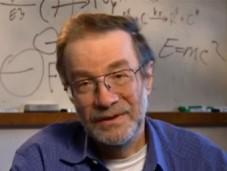$3 Million Prizes Will Go to Mathematicians, Too
Also on Thursday, the latest winners of the life sciences and physics awards were named and honored at a black-tie dinner and ceremony at the Ames Research Center in Mountain View, Calif., co-hosted by Vanity Fair magazine and presided over by the actor Kevin Spacey. Six of the honorees are life scientists, each of whom won $3 million for work toward curing disease or extending life, and two are physicists who helped develop string theory, who split another $3 million. All are men.
The life scientists are: James P. Allison, of the University of Texas MD Anderson Cancer Center; Dr. Mahlon R. DeLong, professor of neurology at Emory University; Michael N. Hall, a biochemist at the Biozentrum of the University of Basel in Switzerland; Robert Langer, a professor at the Massachusetts Institute of Technology; Dr. Richard P. Lifton, a geneticist at the Yale School of Medicine; and Alexander Varshavsky, a cell biologist at the California Institute of Technology.
The physicists are John H. Schwarz of Caltech and Michael B. Green, the Lucasian professor of mathematics at Cambridge University.
All the prizewinners are eligible to win again, but in the meantime they will help judge future contests. For the new math award, Mr. Milner and Mr. Zuckerberg, in consultation with experts, will choose the first winners. Mr. Milner declined to say how many mathematicians would be chosen, but there could be quite a number of windfalls in store: for the physics price, there were nine inaugural winners.
Dennis Overbye

